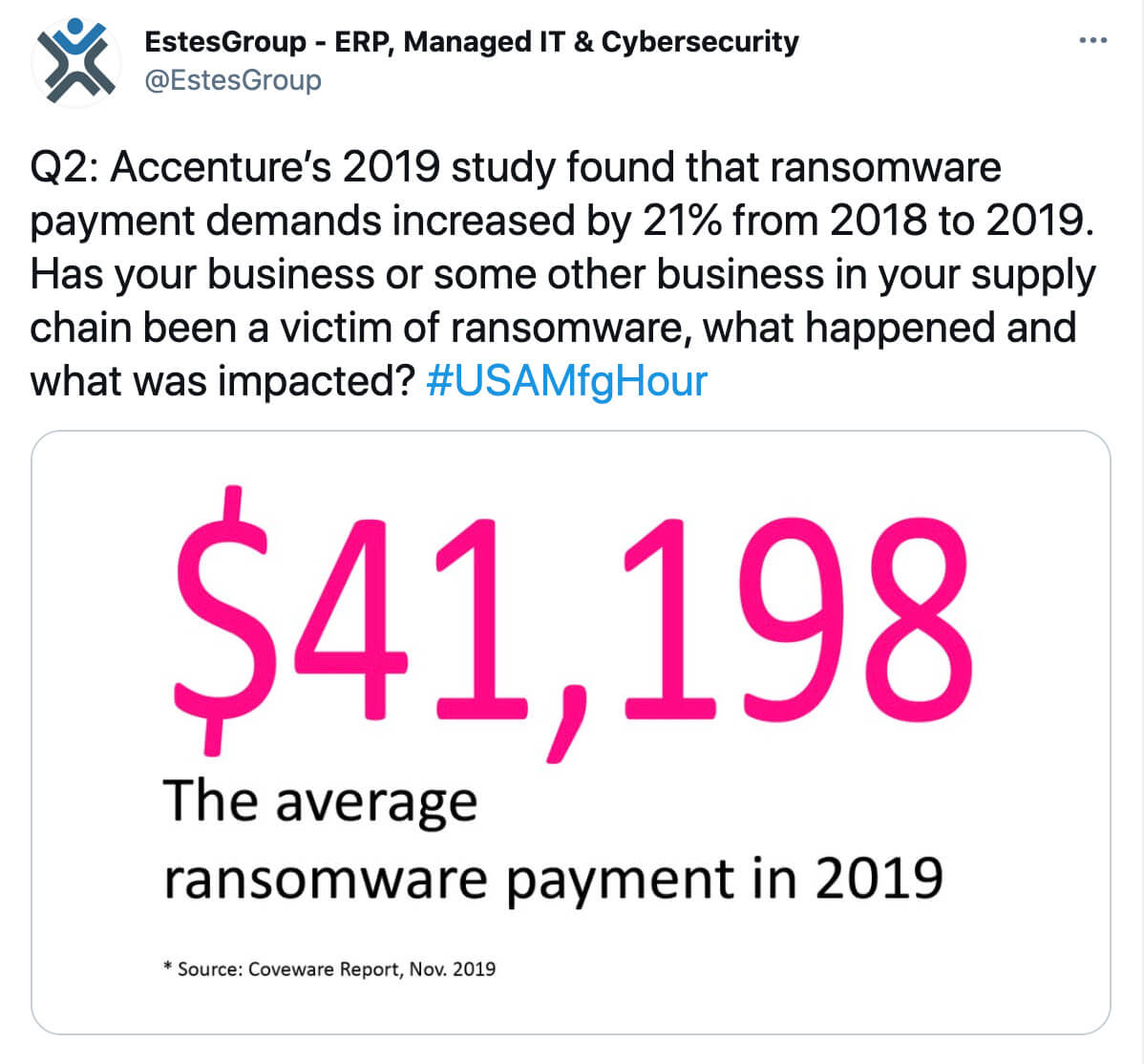Ransomware has become the single largest cyber threat to small businesses. And it’s the ultimate nightmare scenario.
Imagine you’re responding to some emails when suddenly your screen goes black. A few moments later, a message says your computer has been locked. The only way to unlock it? Pay a hefty ransom and many other costs associated with the breach.
The total costs are often too much for a small business to handle.
Unfortunately, cybercrime isn’t going anywhere. It’s time to get educated and make the choices that could save your business.

How You Should Respond to a Ransomware Attack
It’s easy to panic when you first learn you’ve been hacked with ransomware. People will often rush into a decision to pay the ransom, especially when the hackers pressure them.
But it’s not always the right choice. Remember, these cybercriminals don’t play by your rules. And there’s a certain amount of trust involved when paying a ransom. How do you know they will restore your data? Oftentimes, once the hackers know you’ll pay, they’ll raise the price even more. On top of that, they’ll be encouraged that their tactics worked.
While the best offense against a hacker is a good defense, small businesses are usually unprepared. A 2019 Accenture study found that 14% of small businesses were prepared to protect themselves against cybercriminals.
Here are some basic steps you should take if you find yourself in the unenviable position of being hacked:
Contact the authorities
Immediately contact your local authorities. If your business is based in the United States, you should also contact your local FBI field office, which can be found here.
Isolate the infected computer
If only one device were initially compromised, you should immediately quarantine that computer. Disconnect it from the network to ensure the ransomware can’t spread to other devices.
Check out this video detailing a ransomware attack against a hospital:
Inform necessary parties
If customers are affected by the hack, you’ll need to inform them of the situation and let them know of any steps they need to take. Be sure to make your employees aware of the breach as well.
Contact an expert
Occasionally, a cybersecurity expert can unlock your data without communicating with the hacker. You’ll want someone to run a forensic audit to determine how the hacker gained access. Hacked.com can provide these services.
How to Protect Your Business Against Ransomware Attacks
Without question, we’ve entered an era where small businesses need to be proactive against cybercrime. Protection and preparation can go a long way when saving your business. Here are some key decisions you can make to avoid a catastrophe:
Invest in cybersecurity software
Every business should invest in firewalls, anti-virus, anti-malware software, and email security solutions. These are the basic first lines of defense against hackers.
Consult with experts
Be proactive when seeking the advice of cybersecurity experts. Book a consultation with one, so you can tailor your protection to the specific needs of your business. Contact an expert at Hacked.com to start the conversation today.
Backup Your Data
Always back up your data outside of your network. If your network is compromised, you can still access your valuable data.
Here’s a video from the FTC on how to protect yourself:
Keep your systems updated
Be diligent about updating the systems that run on your network. Whether it’s your web browser, anti-virus software, or email service, these programs often issue patches to vulnerabilities in their updates. Hackers are constantly searching for people who ignore these updates.
Consider cyber liability insurance
Investing in cyber liability insurance is a great way to mitigate the enormous costs of getting hacked. This insurance can cover ransom demands, hiring experts, and audit costs, among other things.
Train your employees
One of the most common ways hackers can access your network is through human error. Phishing and social engineering are far easier and more common than directly hacking into a network. Invest in training to prepare your employees to spot a phishing email from a mile. Again, Hacked.com provides these services.
Have a plan
While fortifying your cyber protection will deter most hackers, a breach could still happen if they’re determined enough. Ensure you have a plan so you don’t panic and make bad choices. Build an effective response plan when you talk to your cybersecurity expert.
Featured image by supimol kumying from Shutterstock.com